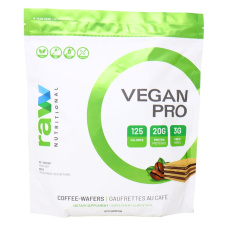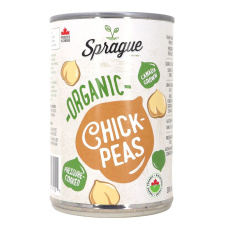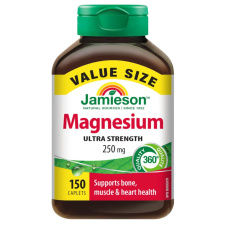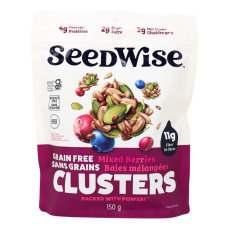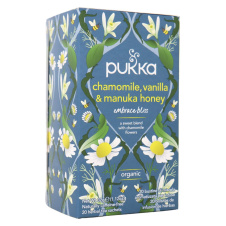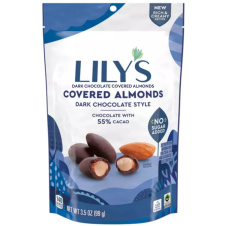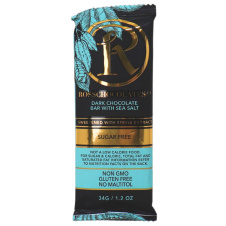
Top 3 Tips On How To Lower Cortisol Levels And Stay Zen
Stress isn’t a good exercise even when it makes you ‘sweat’ the small stuff. Meet cortisol - the stress hormone that makes your life more intense than necessary. Wanna learn how to manage high cortisol levels and achieve zen mode?!
Understanding Cortisol and Its Impact
Cortisol, often dubbed as the ‘stress hormone,’ is a vital part of your body’s response to stress. It is produced by the adrenal glands and helps to regulate metabolism, control blood sugar and manage inflammation. But the helpful hormone can quickly turn into a troublemaker. When cortisol levels go haywire, it can easily wreak havoc on your body and mind.
A cocktail of chaos usually affects cortisol levels: poor diet, chronic stress, sleep deprivation and over-exercising can send cortisol production into overdrive. High cortisol levels can lead to a host of issues - from weight gain and high blood pressure to anxiety and insomnia. In other words, when cortisol is high, your body’s normal processes can start running on the fritz.
Let’s dive deeper into how to lower cortisol levels naturally and effectively. From dietary tweaks to lifestyle changes, we’ll explore different aspects of cortisol management to help you stay zen amidst life’s hustle and bustle.
What happens when cortisol is high?
High cortisol levels can feel like you’re living in a constant state of ‘go-go-go’! When your body’s natural rhythm is thrown off balance, you experience symptoms that make you want to hit the panic button. Common high cortisol symptoms include -
- Weight Gain: Especially around the abdomen, making you feel like you’re carrying around a little extra baggage. The excess weight can contribute to other health issues, creating a frustrating cycle.
- Mood Swings: Your emotions can feel like a roller coaster without a safety bar, swinging from anxiety to irritability.
- Insomnia: Trouble sleeping can leave you feeling like a zombie and in desperate need of a nap. Poor sleep quality affects everything from cognitive function to emotional well-being.
- Digestive Problems: Cortisol can mess with your gut, leading to problems like bloating and indigestion. A disrupted digestive system can further impact your mood and energy levels.
- Weakened Immune System: An overabundance of cortisol can leave you more susceptible to common infections like cold and more.
If these symptoms sound all too familiar, it’s time to take action. Understanding these symptoms is the first step toward taking control and finding effective solutions. Let’s dive into how to naturally lower cortisol levels and reclaim your zen.
How to naturally lower cortisol levels?
Health professionals can help determine the cause of high cortisol levels and recommend treatment. Additionally, you can also try some natural ways and lifestyle changes to help manage cortisol levels.
“No single food, activity or pill promises a lasting blissful calm. Yet, consistently choosing healthy choices can set you up for low-stress success in the long run.” - Ann Le, NM, Nutritionist & Product Marketing Manager @ Natura Market
1. Nutritious Diet: Fuel Your Body Right
A balanced diet is your first line of defence against high cortisol levels.
Here are some recommended additions to your daily meals that help build nutritional defence.
-
Dark Chocolate
Yes, you heard that right! Dark chocolate is rich in antioxidants like flavonoids that may buffer stress reactivity and can help reduce cortisol levels. So go ahead, indulge in a square or two and enjoy the sweet victory over stress. Just remember to choose dark chocolate with at least 70% cocoa content for the maximum benefits.
-
Whole Grains
Whole grain foods like oats, brown rice and quinoa are high in fibre and totally a-maize-ing for you. They can help to regulate blood sugar levels, keeping cortisol from spiking. Whole grains provide sustained energy and help stabilise your mood. You can start your day better with whole grain quinoa muesli or make easy vegan granola bars using whole grain oat flour.
-
Fruits & Vegetables
They’re not just for the waistline… Fruits and vegetables are packed with antioxidants that fight off inflammation and stress. And you surely need a personal army of stress-fighters for this battle! Berries, leafy greens, and citrus fruits are especially effective in reducing cortisol levels. To mix it up, you can make berry smoothies with superfood blends like camu camu powder or pour yourself a glass of 100% tart cherry juice.
-
Legumes & Lentils
Has it bean a while since you had beans? Legumes and lentils are power-packed sources of protein and fibre. They help in stabilising blood sugar and also keep cortisol levels steady.
You can easily add lentils, chickpeas and beans in soups, stews or salads. Or maybe make your morning pancakes with lupin flour.
-
Green Tea
Busy days can be brew-tal! So make sure you sip on a calming cup of green tea at the end. It’ll arm you with antioxidants and naturally reduce stress. Green tea contains L-theanine, an amino acid that promotes relaxation and can help lower cortisol.
A little secret, green tea is our in-house favourite! Or you can go all fancy with butterfly pea flower tea. It’s time to get the zen par-TEA started!
-
Probiotics and Prebiotics
It’s time to resign from the bad gut club! Your gut health influences cortisol levels and is crucial for overall well-being. Try out foods like sauerkraut, yoghurt and bananas.
Of course, you can always sip on probiotic hydration drinks and prebiotic drinks from brands like Cove, Poppi, Halfday and Olipop. We’ve got a gut feeling that you’ll love these!
-
Healthy Fats
Healthy fats can guac your world! Incorporate sources of omega-3 fatty acids, like avocados and nuts, into your diet. These healthy fats can help reduce inflammation and support adrenal function. Try adding flaxseeds to your smoothies or enjoying a handful of almonds or seed mix as a snack. You can start your day with a superseed cereal so that your energy’s never toast!
-
Water
Don’t be a drip; stay hydrated! Dehydration can temporarily increase cortisol levels, so make sure to drink plenty of water throughout the day. Aim for at least eight glasses a day and you can mix it up with some sparkling water too. You can also dribble past your thirst and score the ultimate refreshment goal with a hydration drink!
2. Supplements: Your Cortisol-Busting Sidekicks!
Even the best diet can need some extra help. A word of caution, though: While some herbs might help lower cortisol levels, you don’t want to just swallow pills out of a bottle to address stress.
“If you’re thinking about trying supplements to help with stress, talk to a trained health provider first,” recommends Ann (NM).
For A to Zinc health, make sure you add some of these to your daily routines!
-
Fish Oil
Keep it reel, fish for peace of mind! Rich in omega 3 fatty acids, fish oil supports overall health and helps keep cortisol levels in check. Omega 3s have anti-inflammatory properties that can alleviate stress and improve mood.
You can add fish oil in water or consume Omega 3 capsules. The benefits won’t be just super-fish-oil.
-
Ashwagandha
The Ashwagandha hype is real y’all! This adaptogenic herb has been shown to help reduce cortisol levels and help your body adapt to stress. Ashwagandha can be taken as a capsule, ashwagandha gummy or in powdered form and often is part of stress-management supplements. It’s your go-to natural stress-relief pill!
-
Rhodiola
Kick out the bad vibes with rhodiola by your side. Known for its ability to enhance physical and mental performance, Rhodiola can help reduce cortisol and boost your mood. It’s particularly useful for those dealing with chronic stress or fatigue. Say buh bye stress, with Rhodiola!
-
Chamomile
Make chamomile your bes-tea for a zen-tastic day! More than just a soothing tea, chamomile can help lower cortisol levels and promote relaxation. Chamomile supplements are available in capsule form if you prefer not to drink the tea. But given that steep dreams are made of tea, you might reconsider!
-
Magnesium
O-Mg! Magnesium is the essential mineral that plays a key role in regulating cortisol. For more zen, you should incorporate magnesium-rich foods like spinach, nuts, and seeds into your diet, or consider taking a magnesium supplement for added support.
-
Vitamin B12 and Vitamin C
Avoid the constant fight or flight situation for your body! Both Vitamin B12 and Vitamin C are crucial for adrenal health. Vitamin B12 supports energy levels and cognitive function, while Vitamin C helps combat oxidative stress and supports immune function. You can get these from sardines or Vitamin B12 supplements. For Vitamin C, you can trust superfoods like acai powder, which has triple the antioxidants in blueberries. Incoming, berry-pampering smoothie bowls!
3. Lifestyle Changes
Lowering cortisol levels isn’t a one-size-fits-all solution, but with the right mix of sleep, nutrition, exercise, and stress management, you can create a holistic approach to managing this stress hormone. Remember, it’s not just about reducing cortisol; it’s about cultivating a lifestyle that promotes overall well-being. Here are small lifestyle changes that help especially when high cortisol makes you feel knotty!
-
Sleep: Catch Those Z’s Like a Pro
Always wise to hit the personal reset button. A good night’s sleep can work wonders for cortisol management. Aim for 7-9 hours of quality sleep each night. Create a bedtime routine that helps you wind down. It can be a warm bath,a relaxing cup of green tea, a good book or just going screen-free at least an hour before bed. Sleep is no longer mere luxury, it’s a necessity for keeping cortisol levels in check.
-
Reduce Caffeine Intake: Less Jitters, More Zen
Caffeine is a double-edged sword. While it can give you a quick boost, it can also spike cortisol levels. Try to limit your intake of caffeinated beverages and opt for herbal teas or water instead. Your adrenal glands will thank you! If you’re a tea/coffee lover, consider switching to decaf, caffeine-free tea or herbal alternatives like rooibos tea or chamomile. Gradually reduce your caffeine consumption to avoid withdrawal symptoms and give your body time to adjust.
-
Exercise: Sweat It Out, So You Don’t Burn Out
Feeling knotty? Yoga’ll untangle those nerves. Exercise is a fantastic way to manage stress, but it’s essential to find the right balance. Moderate exercise like yoga, swimming, or brisk walking can help lower cortisol levels. However, over-exercising can have the opposite effect, so listen to your body and avoid pushing it to the limit. If you need some extra help, you can use protein powder to aid muscle recovery.
-
Stress Management
Got a furry friend? Spending time with pets can be a delightful way to reduce cortisol levels. The companionship and affection from pets can help lower stress and bring a smile to your face. It’s like having a personal cheerleader and stress-buster all rolled into one! If not, you can incorporate relaxation techniques like deep breathing, meditation, or mindfulness into your daily routine. These practices can help lower cortisol and promote a sense of calm.
-
Healthy Relationships: Love A Waffle Lot
Healthy relationships can be a powerful antidote to stress. Surround yourself with supportive, positive people who uplift you and help you navigate life’s challenges. A strong social network can help keep cortisol levels in check and contribute to overall well-being.
So, go ahead - take these tips, mix them into your daily routine and transform your life into a stress-free zone. Your cortisol levels - and your sanity - will thank you!
Frequently Asked Questions About How To Lower Cortisol Levels
1. What are some natural ways to lower cortisol levels?
Natural ways to lower cortisol include getting enough sleep, eating a balanced diet rich in antioxidants, and engaging in regular, moderate exercise. Incorporating stress management techniques and spending time with pets can also help.
2. How does sleep affect cortisol levels?
Sleep plays a crucial role in regulating cortisol. Poor sleep or sleep deprivation can lead to increased cortisol production, while good-quality sleep helps maintain balanced cortisol levels.
3. Can supplements help reduce cortisol?
Yes, certain supplements like fish oil, ashwagandha, and magnesium can help reduce cortisol levels. Always consult with a healthcare provider before starting any new supplement regimen.
4. How does stress impact cortisol levels?
Chronic stress can lead to elevated cortisol levels, which may cause a range of health issues. Managing stress through relaxation techniques and maintaining a healthy lifestyle can help regulate cortisol.
5. What are some signs of high cortisol levels?
Signs of high cortisol levels include weight gain, mood swings, insomnia, digestive issues, and a weakened immune system. If you experience these symptoms, it’s important to seek advice from a healthcare professional.
6. How can exercise affect cortisol?
Exercise can help regulate cortisol levels, but it’s important to find a balance. Moderate exercise is beneficial, while excessive exercise can increase cortisol production. Aim for a routine that supports overall health without overloading your body.
Here’s to a more balanced and zen-filled life!



